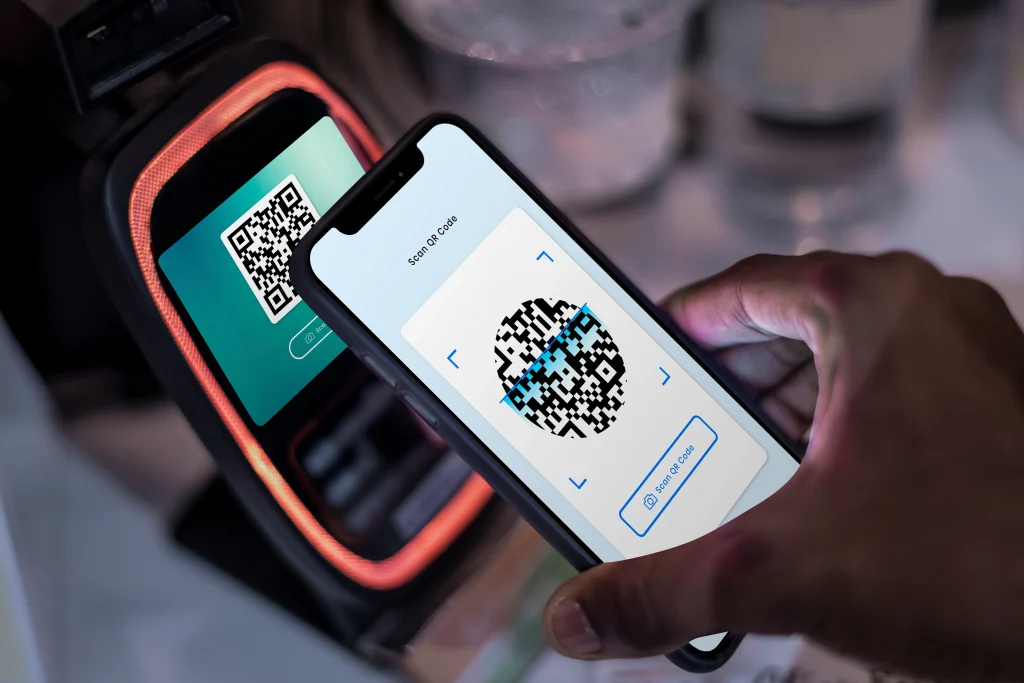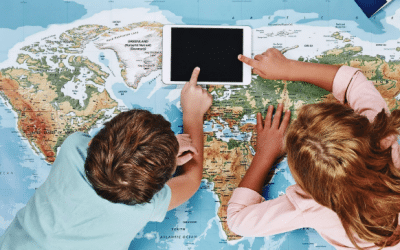Each year, we look at forecasted travel industry trends that will greatly impact global tourism and hospitality. With the gravity of the COVID crisis, these insights are much more than travel trends – rather, they are values and principles that will help guide the industry towards a healthier and more sustainable future. From information by innovation to the increasingly important role of the travel company, here are key travel trends we expect to see in 2022.
Let’s have a look at the key travel trends and values that will shape the industry in 2022.
1. Tech-empowered travel will be essential
It cannot be understated that the role of technology in travel will continue to grow in importance during 2022 and beyond. From digital vaccine passports to real-time travel notifications, technology solutions will play a pivotal role in keeping the public informed and providing guidance with all travel decisions.
As countries begin to welcome back vaccinated travelers, requirements for testing, quarantines, and forms will still vary between destinations. Providing clear and current international travel requirements – plus timely updates should travel conditions change – will be essential to supporting travelers throughout their journey.
Additionally, contactless technology will continue to bring ease to the travel experience. Travel companies have embraced innovative tech solutions to keep travelers safe and provide instant access to help and information. Contactless check-in and boarding, the ability to order food or services via app, or concierge support through Whatsapp or chat are all solutions that provide extra peace of mind to a traveler.
We also expect to see AR/VR technologies increase in importance, through solutions such as virtual tours of resort suites, aircraft cabins, museums, and attractions. These technologies help travelers research a destination more thoroughly, providing confidence with trip planning.

2. Personalization and guidance, more crucial than ever
In addition to travel requirements, travelers will be seeking expert guidance for every aspect of their trip. While in years past trip planning may have occurred via review sites or light web browsing, now there’s much more to consider. For instance, how have vaccine distributions progressed in this destination? Are mandates in place for restaurants or theatres? For many travelers, creating daily itineraries is now a much more complex and overwhelming process.
Travel companies can step up to meet that need. From health protocols per attraction to insights on where and when to avoid crowds, travelers will invest additional care into their trip planning – and expect personalized support from the brands they travel with.
For a travel company, this may look like rethinking travel marketing and digital strategies, integrating hyper-local destination content into apps, social media, and websites, and providing authoritative information to keep travelers and their loved ones safe. Companies are no longer simply a connection from point A to point B, but a source of wisdom and support along the way.
3. Preferred plans and experiences in 2022
As travelers consider trips in 2022, enriching travel experiences are top of mind. Many travelers are looking to reconnect with loved ones, and holidays in the great outdoors provide both rest and socially distanced explorations. Travelers will be seeking out hidden gems, dream destinations, and opportunities for nature-focused activities such as hiking, photography, or kayaking.
And when it comes to accommodations, cleanliness and security are a must. Recent research from the European Travel Commission reveals that over half of respondents considering travel in the next year prefer to stay at hotels or independent resorts rather than short-term rentals and other accommodations.
The strength of a trusted brand provides confidence that essential health measures will be in place. Combined with pristine nature experiences, these elements add an extra layer of support to the traveler’s journey.
With this in mind, resorts can engage 2022 travelers by highlighting cleaning protocols, wellness programs, and eco-friendly excursions. Also, hotel brands with off-resort accommodations – like vacation homes or cabins – can feature units that provide extra space and privacy, along with the professional cleaning and customer support one would expect from their favorite resort brand.

4. Sustainability should be consider a key element
Sustainability in the airline industry especially is, and will be, a continuous trend in travel. Tourism trends surrounding low-carbon travel – which we’ll examine further below – will continue to evolve, as travelers keep a keen eye on organizations’ environmental initiatives. For example, Google Flights is now presenting carbon emissions estimates for most flight searches – a major step for the industry in providing travelers with sustainability insights.
The travel community will also increasingly expect transparency from travel entities on their sustainability initiatives. As international travelers become more aware of the climate crisis, the concern grows for reducing one’s footprint and enjoying holidays responsibly. The ETC recently published their handbook on Encouraging Sustainable Tourism Practices. Here are a few insights that reflect traveler values:
- Nearly 70% of travelers expect the industry to offer more eco-friendly travel options
- 46% of European travelers consider waste management to be the most important environmental issue
- 40% of European consumers would stop flying in order to help mitigate climate change
As countries around the globe work to meet their Paris Agreement commitments, and individual companies present their own environmental goals, travelers will be looking for organizations focused on sustainability and innovation. From plastic-free initiatives to progress in reducing carbon emissions, travel brands must connect with their travelers on all these points of concern.
5. Safety and health-focused measures must be communicated clearly
Along with prioritizing health and wellness, and longing to connect with nature, travelers will be seeking to invest in brands that share those convictions. For example, a recent study from OAG found that 70% of US travelers surveyed believe vaccine passports should be required for international travel, and 68% are interested in domestic passports, as well.
Research continues to show that travelers feel safer when health-focused measures are in place in dining, retail, and tourist destinations, so this will continue to be a travel trend in 2022. Travel companies should not only highlight their own safety initiatives, but local attractions going the extra mile for public health. This content not only informs the traveler audience but inspires and delights.

6. ‘Back to business’ travel
Finally, a look at corporate travel trends. This is a realm of the industry that remains up in the air, and will most likely be one of the last sectors to recover on an international scale. The return to business travel will depend on many factors, including vaccination levels, border openings, and reworked budget structures. As many organizations have discovered efficiency in remote work, extensive corporate travel may not be as high a priority as in pre-pandemic years.
Therefore, we can expect to see more online training and webinars, virtual or hybrid conferences, and emphasis on regional travel, when events begin to resume. In the meantime, however, it’s important to note the sentiment surrounding business travel. A recent PWC study found that 75% of business travelers are not excited – or indifferent – about the thought of traveling for work once more. However, travel companies are launching initiatives and campaigns like this one from Iberia Airlines, to inspire and encourage the business travel sentiment back again.
In addition to clear and thorough messaging on travel requirements and cleaning protocols, travel companies should approach corporate clients with empathy and support. Offerings such as flexible cancellations, spacious and private business class seating, and remote work hotel packages can all help to address client cares and concerns.
Conclusions
After almost two years of uncertainty, we cannot still be 100% clear on what the future of travel looks like, but we can at least see more light on the horizon. Travel requirements, health and cleaning protocols, safety measures, and sustainability will remain continuous topics in 2022. Travelers will start dreaming again about long-distance travel and dreamed holidays, but there will still be a focus on outdoor plans and socially distanced destinations.
On the technology side, ‘contactless’ will be an active trend next year and travel companies will need to find ways to give more guidance and personalized support to their customers in their journey through digital and innovative experiences. Business travel will slowly return in 2022, but there is still a long way to see full recovery – and it is unlikely that we will see it in the coming months – since remote working and virtual meetings seem to be more popular day by day.





